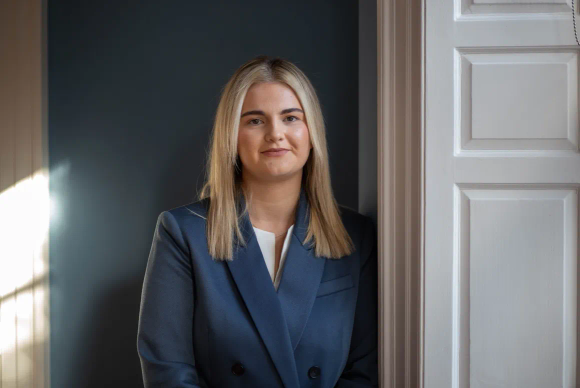How long does a Child Arrangement Order last?
A Child Arrangement Order usually lasts until the child turns 16 years old, unless the court specifies a shorter duration. In some exceptional cases, such as if the child has special needs or is still in full-time education, the order can extend until the child reaches 18 years old.
For short-term needs, the court may issue interim arrangements, especially during ongoing disputes or safeguarding investigations. It’s essential to note that if the order includes specific terms, such as contact arrangements, these terms may end earlier if agreed upon by both parties or varied by the court.
Can a Child Arrangement Order be changed?
Yes, a Child Arrangement Order can be changed through a court application for variation. Circumstances where changes may be necessary include:
- A parent relocating.
- Significant changes in the child’s needs, such as health or education.
- Concerns about the child’s safety or welfare under the current arrangement.
To request a change:
- Complete and submit a C100 form to the family court.
- Provide evidence supporting the change (e.g., reports from social services or health professionals).
- Attend a court hearing where a judge will assess whether the proposed changes benefit the child’s welfare.
Working with a solicitor can strengthen your case and ensure the court fully understands your situation.
What happens if a Child Arrangement Order is breached?
If a Child Arrangement Order is breached, the affected parent can apply to the court to enforce the order. Here’s how the process typically unfolds:
- Warning Notice: Most orders include a warning notice explaining the consequences of non-compliance.
- Application to Enforce: The compliant party files an application (C79 form) to request enforcement.
- Court Review: A judge will assess the reasons for the breach, considering whether it was deliberate or due to unforeseen circumstances.
Possible outcomes include:
- Issuing a warning or variation of the order.
- Imposing fines, community service, or compensation for financial loss.
- In severe cases, changing custody arrangements.
The court’s priority remains the child’s welfare, so genuine emergencies or unavoidable breaches are usually considered sympathetically.
What happens if we never married or were in a civil partnership?
Not being married or in a civil partnership does not affect your ability to apply for a Child Arrangement Order. Parental rights are determined by parental responsibility, which automatically applies to:
- Mothers.
- Fathers named on the child’s birth certificate (after December 1, 2003, in England and Wales).
If you lack parental responsibility, you can still apply for an order if you’ve played a significant role in the child’s life. For example, step-parents or guardians may need to show their relationship with the child benefits the child’s welfare.
How does the court decide child arrangements?
The court makes decisions about child arrangements based on the child’s welfare, guided by the Welfare Checklist under the Children Act 1989. Factors considered include:
- The child’s wishes and feelings (depending on their age and understanding).
- Emotional and physical needs, including stability and routine.
- Parental capability to meet the child’s needs.
- Potential harm or risks, such as safeguarding concerns.
The court prioritises arrangements that support the child’s development while maintaining relationships with both parents where possible.
How can I minimise the impact of our divorce on our children?
To help your children cope with divorce:
- Communicate openly and honestly, ensuring discussions are age-appropriate.
- Avoid blaming or involving the child in disputes.
- Maintain a stable routine to provide consistency.
- Encourage relationships with both parents to give the child emotional security.
Consider family mediation to reduce conflict and involve your child in counselling if needed. A child-focused approach can make a significant difference during this challenging time.
Will I need to see my former partner?
In most cases, you will need to interact with your former partner, especially during mediation or court proceedings. If domestic abuse or safeguarding concerns exist, the court can put protective measures in place, such as:
- Using separate waiting areas during hearings.
- Allowing communication only through solicitors or mediators.
- Ordering supervised contact where necessary.
The goal is to resolve disputes while ensuring your safety and comfort.
Will I have to go to court?
You won’t always need to go to court. Mediation is the first step for most families, helping resolve disputes without legal intervention. However, court involvement becomes necessary when mediation fails, and parents cannot agree. The other reason is when there are safeguarding concerns or allegations of abuse.
If you must attend court, your solicitor will represent your interests, ensuring your voice is heard and your child’s welfare is prioritised.
Do you accept legal aid cases?
Yes, we accept legal aid cases for eligible clients. Legal aid is typically available if:
- You meet financial eligibility criteria.
- There is evidence of domestic abuse or safeguarding issues.
Contact us to discuss your eligibility and explore other cost-effective options if legal aid is unavailable.
Can grandparents apply for a Child Arrangement Order?
Grandparents can apply for a Child Arrangement Order, but they often need court permission first. The court considers the grandparent’s relationship with the child and whether continued contact serves the child’s welfare.
Once permission is granted, grandparents can apply to formalise their role in the child’s life, such as arranging visits or maintaining regular contact.
How does travelling abroad work with a Child Arrangement Order?
The resident parent can travel abroad with the child for up to 28 days without the other parent’s consent if the Child Arrangement Order grants them residence rights. For longer trips or permanent relocation, you’ll need:
- Written consent from the other parent.
- A court order if consent cannot be obtained.
Always notify the other parent in advance and provide details about the trip, including travel dates and contact information.
How long does a Child Arrangement Order take?
The process to finalise a Child Arrangement Order can take 4 to 6 months, depending on:
- The complexity of the case.
- The number of hearings required.
- Involvement from CAFCASS or social services.
Delays may occur if additional reports or investigations are needed. Working with an experienced solicitor ensures the process runs as smoothly as possible.
Why Choose McGee McGee Agar Law?
When it comes to child arrangement cases, McGee McGee Agar Law stands out as a trusted choice for families in Middlesbrough and beyond. With extensive experience in family law, we understand the emotional and legal complexities these cases bring. Our solicitors have a proven track record of achieving successful outcomes, always prioritising the best interests of the child.
What Sets Us Apart?
- Extensive Expertise: Our team specialises in family law, ensuring you receive knowledgeable and precise legal advice tailored to your circumstances.
- Client-Focused Approach: We provide compassionate, personalised guidance to help you navigate emotionally charged situations with confidence.
- Proven Success: From straightforward arrangements to high-conflict disputes, we have consistently delivered results that give families clarity and stability.
Whether you need help with custody arrangements, contact disputes, or safeguarding concerns, our solicitors are here to guide you every step of the way. Our team will listen carefully to your concerns, explain your options, and develop a clear plan to achieve the best outcome for your family.
Don’t face child arrangement challenges alone. Schedule a consultation today with McGee McGee Agar Law and let us provide the expert support you deserve.





